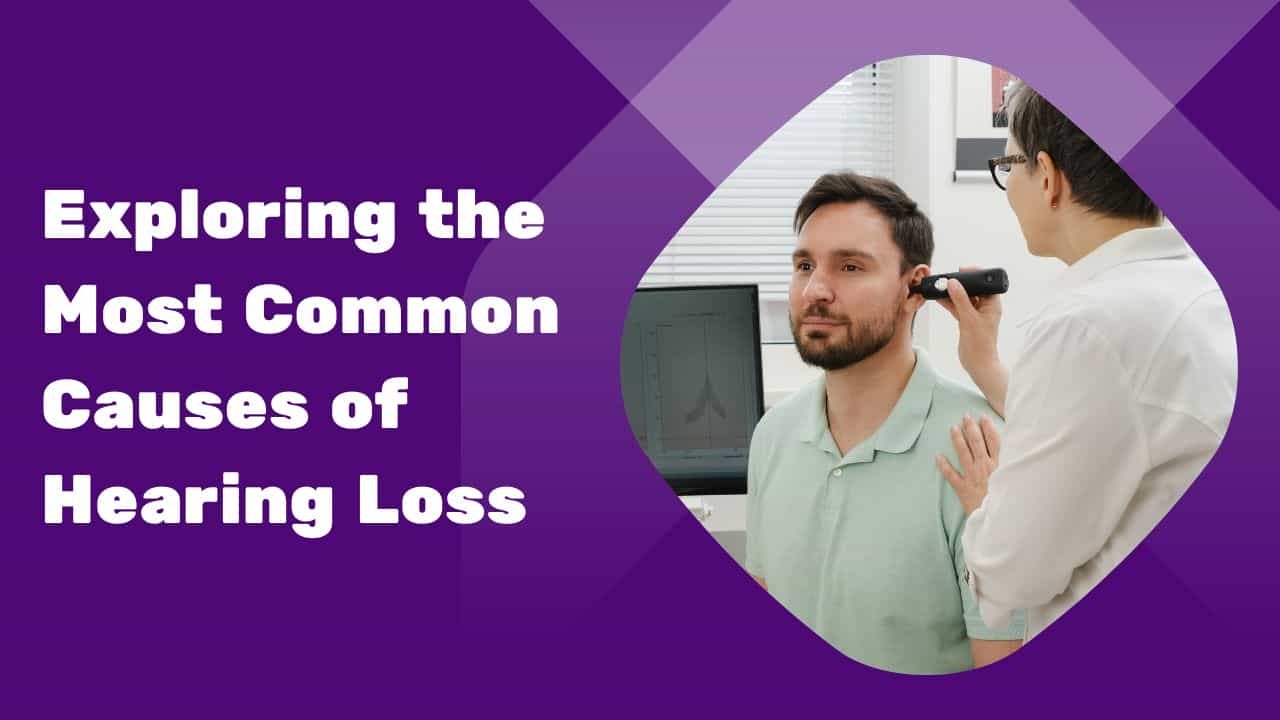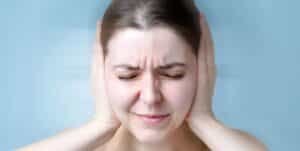As you age, experiencing hearing loss is a usual thing. There are numerous causes of hearing loss, ranging from minor to extensive, including aging, sickness, trauma, and genetic disorders. Determining the exact cause aids in choosing the suitable treatment.
Hearing loss at birth is known as congenital hearing loss, and hearing loss after birth is known as acquired hearing loss. Whatever your condition, technological advancements provide you with multiple solutions to meet potential needs. Approaching professional doctors or audiologists can help you get better assistance. Here, we will discuss what causes hearing loss and how to prevent it.
Beyond just helping people hear better, these gadgets also help people with hearing loss maintain their quality of life, avoid cognitive deterioration, and reestablish social connections.
Types of hearing loss
There are three main classifications of hearing loss: sensorineural, conductive, and mixed.
Sensorineural hearing loss
Sensorineural hearing loss, the most prevalent type, occurs when the nerves and hair cells in the inner ear sustain damage, often attributed to factors like aging or exposure to loud noise. This type affects the transmission of sound signals from the inner ear to the brain.
While medical or surgical correction is usually not feasible, sensorineural hearing loss can often be managed effectively with the use of hearing aids.
Conductive hearing loss
Conductive hearing loss, on the other hand, is caused by obstacles in the outer or middle ear, such as fluid buildup, tumours, earwax collection, or an uneven ear structure.
These impediments hinder the passage of sound to the inner ear. Typically, conductive hearing loss can be remedied through surgical intervention or medication.
Mixed hearing loss
Mixed hearing loss is characterized by a combination of sensorineural and conductive hearing impairments, presenting challenges related to both types.
Given the complexity of hearing loss and its potential causes, it is advisable to seek guidance from a hearing professional to accurately diagnose the type, cause, and severity of the condition.
Also Read – Ways to Prevent Hearing Loss
What are the major causes of hearing loss?
While thinking about what can cause hearing problems, there are multiple factors that influence hearing loss. Temporary hearing loss can arise from various factors, including:
– Earwax Buildup: The ear canal naturally produces cerumen, or earwax, which serves to protect and lubricate the ear tissues. It is one of the major hearing aid problems causes. An accumulation of earwax can obstruct the ear canal, resulting in temporary conductive hearing loss.
Best Practices for Buying Hearing Aids
– Foreign Objects: Objects lodged in the ear canal, such as the tip of a cotton bud, can cause temporary hearing impairment by blocking sound transmission.
– Excessive Mucus: Conditions like the common cold, flu, hay fever, or allergies can lead to an overproduction of mucus. This excess mucus may block the Eustachian tube in the ear, causing temporary hearing loss.
– Ear Infections: Infections affecting the outer ear (otitis externa) or middle ear (otitis media) can result in temporary hearing loss. Fluid buildup and pus associated with these infections can interfere with sound conduction, leading to decreased hearing acuity. Identifying and addressing the underlying most common cause of hearing loss is crucial for restoring normal hearing function. In many cases, once the underlying issue is resolved, hearing typically returns to normal.
Other crucial factors
Concentrating on what causes hearing problems, these can stem from a variety of factors, including:
– Hereditary Disorders: Some forms of hearing loss are inherited, where parents pass on affected genes to their offspring. In many cases, hereditary hearing loss results from inner ear malformations.
– Genetic Disorders: Genetic mutations occurring during conception can lead to hearing loss. Conditions like osteogenesis imperfecta, Trisomy 13 (Patau syndrome), and Treacher-Collins syndrome are among the genetic disorders associated with hearing impairment.
– Prenatal Exposure to Disease: Certain diseases contracted during pregnancy can result in congenital deafness or hearing problems in newborns.
– Noise Exposure: Prolonged exposure to loud noises, whether in the workplace or recreational settings like concerts or shooting ranges, can damage the delicate structures of the inner ear. Protection measures such as ear muffs or plugs are essential to prevent noise-induced hearing loss.
– Trauma: Physical trauma to the ear, such as a ruptured eardrum, skull fracture, or sudden changes in air pressure, can cause hearing loss.
– Disease: Certain illnesses like meningitis, mumps, cytomegalovirus, chickenpox, and severe cases of jaundice can lead to hearing impairment.
– Other Causes: Conditions like Meniere’s disease, which affects the inner ear’s balance and hearing mechanisms, and exposure to specific chemicals can also contribute to hearing loss.
Preventive measures
The most prevalent causes of hearing loss in adults, such as exposure to loud noises and ototoxic medications, are preventable.
Choosing a reputable hearing aid center in Mumbai will be a wise decision. There, professionals deliver effective strategies for minimizing hearing loss in different phases of life.
To prevent ototoxic hearing loss, consider immunization, good maternal and childcare practices, genetic counseling, managing common ear conditions, occupational hearing conservation programs, safe listening strategies, and rational medication use.
Bottom line
Understanding the diverse factors that can cause hearing loss is crucial for prevention, diagnosis, and treatment. Regular screenings and appropriate precautions can help overcoming the risk of developing hearing impairment and promote overall auditory health.
Get your best Hearing Aid consultancy from an expert Audiologist at your home
Recent Posts
- Single-Sided Deafness and Asymmetric Hearing Loss: Causes, Classifications, and Management

- Binaural Hearing: Understanding the Science and Benefits of Hearing with Both Ears

- A Comprehensive Guide to Preventing Whistling in Your Hearing Aids

- Exploring the Myths: Can Hearing Aids Lead to Vertigo Symptoms?










